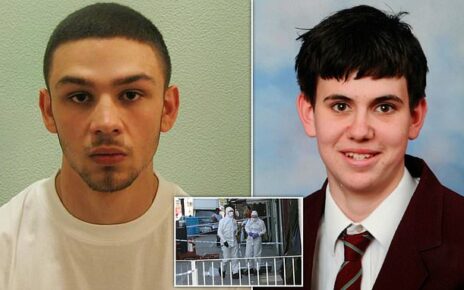Save articles for later
Add articles to your saved list and come back to them any time.
An Australian man stuck in Gaza with his wife and children has told of his family’s fear as chaos reigns, bombs drop and they run out of water, money and medicine for their son.
The four, from Adelaide, are staying with family near the Egyptian border. They try not to go outside unless absolutely necessary, the man says. His father-in-law spends four hours a day queuing for bread. “The water is so scarce,” he says.
Wounded Palestinians arrive at the al-Shifa hospital, following Israeli airstrikes on Gaza City, central Gaza StripCredit: Abed Khaled
“The locals rely on an artesian water well at the local mosque where they fill jerrycans and bottles.” They have bread for breakfast, rice and lentils for lunch, and skip dinner. “If the kids get hungry, we make them tea with some biscuits,” he says.
The family is among 45 Australians stuck in Gaza, where the aerial bombardment continues and threat of a ground invasion looms. As the United States continues to negotiated access for aid trucks from Egypt in coming days, foreign nationals gathered with the Australian family at the Rafah crossing hope international passport-holders will be allowed out too.
The Adelaide man, who does not want his identity revealed to ensure his safety and because he works in a sensitive industry, said they hear bombs falling at night.
“We try to distract the children by giving them something go play with, taking turns to tell them stories and try to give them chores to do at home,” he said. “My son in particular struggles with the lack of physical activity.” His son needs medication, which is also running out.
The queues for bread are hours long, but on Friday the power generator at the bakery broke, and customers were sent away empty-handed. They are also running out of money. He is down to his last $300. There are no operating banks or ATMs.
Shops are mostly closed, although a few still have stock that’s quickly running out.
The lack of electricity and internet means the man is struggling to connect with his supporters in Australia, who are pressing his family’s case with the Australian government.
“Our neighbours are kind enough to share a line from their humble diesel-powered electricity generator, which they run for an hour every day – long enough for us to charge our phones and laptops,” the man says.
The man had not visited the region for 12 years due to safety, but pressing family issues and a previous relative calm prompted them to plan a four-week visit. Hamas’ attack on Israel came two weeks into their holiday, triggering a massive military response.
A Palestinian looks on from his house damaged by Israeli airstrikes in Rafah, southern Gaza Strip.Credit: AP
The man and his family were in northern Gaza when the order came from Israel last week to move to the south. Initially, he was reluctant to move; “we have nowhere to go, no petrol to drive south, so many belongings to part ways with”.
They decided to wait and watch. But that night, around 8pm, a four-storey building about 100 metres away was “struck flat”, he says, “by fighter jets”. He believes it was an F16. “The explosion was deafening.
“I felt that was it … we’re dead. Kids started to scream.” He rushed his family away from the windows just as the building was hit by another strike. “Ambulances rushed to the area, shredded bodies everywhere.”
They decided to evacuate but still had no petrol for their car, “nowhere to escape to”. They fled to the Red Crescent hospital in Tal al-hawa, which is a few hundred metres from his parents’ house. Hundreds of people were already sheltering there. They found a spot on the third floor. “I was with my extended family of 16,” he says.
They stayed for a few hours, but were told the whole hospital had to be evacuated by 6am. “We felt lost, not sure where to go,” he said. Hospital staff urged everyone to leave by 5am, saying they could walk the 10 kilometres south with ambulances and Red Cross vehicles.
But the Red Cross didn’t arrive. The Australians decided to travel to his wife’s family near the Rafah crossing to Egypt. They desperately tried to find a taxi, and finally found one willing to take them in exchange for much of his remaining money.
Twice over the following days they were told by Australian foreign affairs officials that the border would open, and they could cross; twice, those hopes were dashed. On Friday, there were still there, waiting.
The man said Foreign Affairs Minister Penny Wong called last week. He has since sent her messages, pleading for help. “You made a promise to do your utmost, and we continue to hold on to the hope that your efforts will bear fruit without delay,” read one message.
He is anxiously hoping that the border will open. “Sometime I feel hopeless but try to correct my mindset to think more positively,” he says. “I remember all those in Australia who try really hard to advocate and influence on my family’s behalf. ”
Get a note directly from our foreign correspondents on what’s making headlines around the world. Sign up for the weekly What in the World newsletter here.
Most Viewed in National
From our partners
Source: Read Full Article





